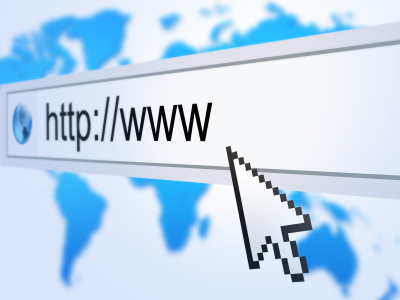Many websites are no longer based on static HTML files and server-side pages are allowing much more functionality. Modern websites are basically dynamic and they draw information from large, back-end database. The biggest advantage of dynamic websites is that we can get much more functionality and we can create those pages on the fly. These dynamic pages could also be created using specific templates and this would save a lot of development time. In this case, webmasters are able to edit templates manually and make appropriate changes to the basic codes. Common server-side technologies include ASP and PHP, backed up by MySQL for the back-end storage. In general, dynamic websites can be helpful if we have hundreds or even thousands of webpages. It is not necessary to edit content manually, because information can be delivered automatically from the back-end database.
Dynamic websites are consisted of dynamic URLs. It means that each webpage could have different URLs depending on specific factors, such as [http://yoursite.com/index.php?area=search&browse=2&category=3&]. It is clear that the webpage is pointed to a category, Dynamic URLs often have additional characters, such as &, =, ? and others; which are called STOP characters. Because URL can change for specific reasons, it is important for us deal with it. If we have dynamic pages in our website, we could have indexing problem. Dynamic webpages have blocks of code in its HTML script and they could traps bots in continuous loop. Because the server could create tons of dynamic pages, it will be very difficult for bots to completely crawl the entire website.

In general, search engines prefer to get unique content, not duplicate one. However, it is possible that dynamic websites produce webpages with similar or nearly identical content with different URLs. This could happen if pages are created based on small differences. Although those small differences could be significant for human readers, search engine bots don’t know that. It means that there’s a possibility that much of our website won’t be indexed, because bots think that they are not different significantly enough.
Other thing that we need to consider is sid= or sessions Ids. This could cause duplicate issues as well. Sessions IDs are usually located in the URL to notify the server about the identity of the user. Sessions IDs are also considered as cookies and many dynamic websites are using them. Sessions IDs can be used on dynamic websites that require users to log in. In this case, different IDs could point to identical webpages and this cause duplicate content issues. Eventually session IDs could expire and dead links can be created if server has strict rules. So, if someone goes to the URL, this could cause a 404 error page and this will also happen to search engine bots.
For this reason, it is clear that we should avoid using dynamic elements that could make it difficult for bots to crawl the whole page. Codes should be optimized to make sure that bots will move smoothly.



